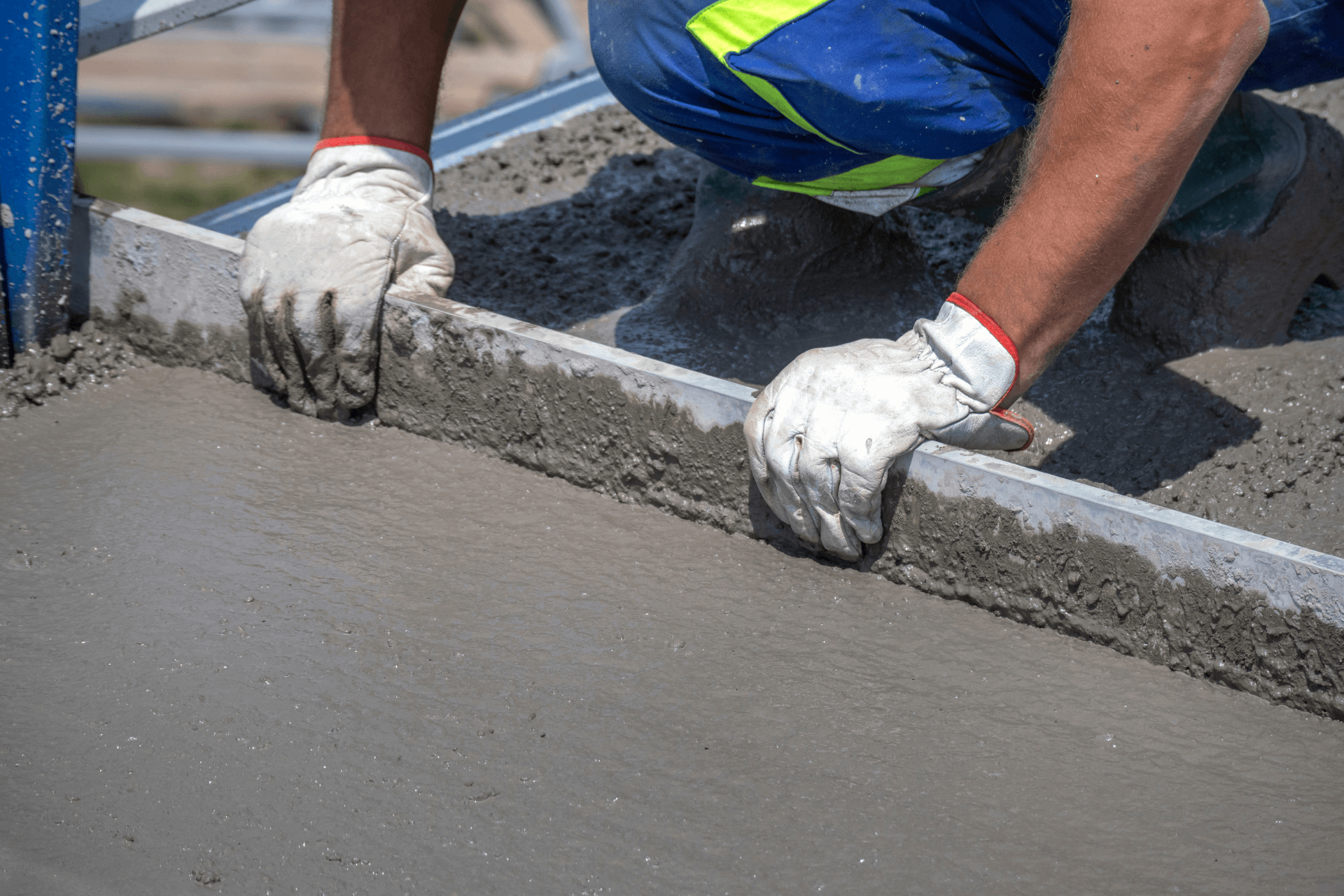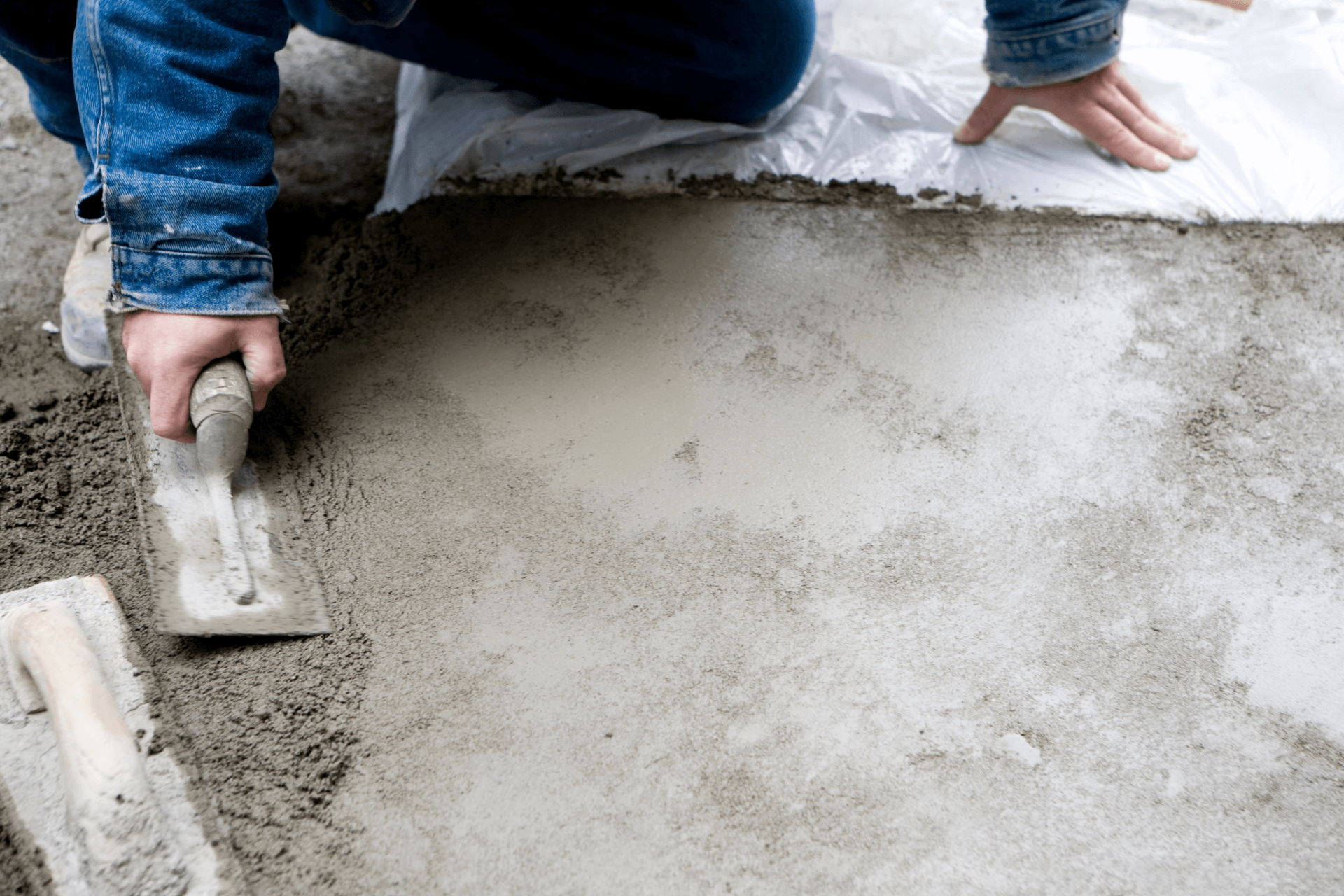SLABWORK
Concrete slabs make an excellent foundation for commercial and residential development projects. They provide an economical and durable alternative to other materials.
They have numerous advantages over other materials owing to their excellent features and benefits. It provides thermal comfort by absorbing heat. It can cool the room and regulate the indoor temperature. A concrete slab is meant to be made to last a long time.
When the concrete is carefully planned and installed, then it can increase the longevity of the slab. With the help of our concrete contractors, we can execute the process with precision to create high-quality concrete. It is also resistant to termites.
Concrete that is specially designed to have higher resistance to shrinkage and cracking also have a higher resistance to termites. They also are less likely to get damaged due to environmental factors once they are completed with sealants.
What Are The Types Of Concrete Slab Available?
Several types of slabs are available for use depending on the project, residential or otherwise. Different construction projects require different types of slabs. They are described in detail below.
Flat Slabs
Flat slabs are easy to construct and do not require a lot of formwork. It is usually supported on caps or columns. They are good at providing the overall sturdiness of the structure.
They can increase the overall strength by using them beneath the system. This can help in reducing the expenditure on the project.
Conventional Concrete Slabs
Conventional slabs are typically supported on columns and beams to carry weight. It can either be one-way or two-way. Conventional slabs are available in two more types.
They are One-way supported slabs and Two-way supported slabs. One-way supported slabs are sustained by two beams on the opposite sides. They carry the load in only one direction.
Two-way supported slabs are sustained by four beams on all four sides. They carry the load in both directions.
Hollow-core Ribbed Slab
They are known for their weight-reducing features. A hollow core ribbed slab reduces the weight of the concrete by 50% but retains the same strength.
These slab works can be used as service ducts as well. They are generally strengthened using materials such as rebar. Also, they can last for a very long time. This makes them the most suitable choice for commercial buildings, industrial structures, and multistorey car parking facilities.
Waffle Slabs
These are two-way slabs with concrete ribs running in two directions. The pattern created by the reinforcing ribs makes the slab look similar to waffles, thus the name. These slabs are capable of shouldering a greater load than other conventional slabs.
Solid Slab
A solid slab raft spans the entire structure. This is best used for buildings that don’t carry heavy loads or are built on weak soil. It is primarily used in constructions with shallow foundations.
It distributes the load across the area. This slab can spread the weight across numerous other supports such as walls, columns, and many other things.
Composite Slab
A composite slab is created by pouring concrete on top of steel decking. It acts as formwork and reinforcement. These slab works are generally used for their stiffness and mass. They can be easily reduced to match the floor's vibrations and deflections.
This slab is better for thermal storage and fire protection. These slabworks are often supported by steel underneath. This can increase its ease of handling. This combination will have an excellent stiffness weight ratio as well as a strength weight ratio.
Slab Construction- How Do We Produce Concrete Slab?
There are several steps taken to create a concrete slab. It can either be done onsite or be premade and then transported. Our concrete contractors take pride in carrying out each step correctly.
The first step is to prepare the site. Pouring concrete requires a specific set of skills, essential tools and equipment. We are a company with lots of experience to ensure your concrete is professionally made.
The forms need to be built based on the dimensions of the needed concrete slab before pouring. The thickness of the slab depends on the weight that it is supposed to be supporting.
After the forms, a base needs to be built to ensure that it drains well to prevent cracks. Install rebar to add reinforcements to the concrete slab. After the forms are installed, pour the concrete into the formwork and foundations that was created for the slab construction.
Finally, we smooth the bull float. The concrete needs to be hand floated and troweled for a smooth finish. The process can be complicated, but specialists in our company got your back to complete any complicated project that involves slab construction.
What Are The Advantages Of Concrete Slab?
Concrete slabworks have numerous advantages over other materials. This includes their ability to mold into whichever shape or size you want it to. Here are some of the important advantages that have made concrete slab so popular.
Durability
One of the most appreciated qualities in any type of concrete slab is its durability. It lasts longer than most of the other alternatives available in the market.
Resistance To Dampness
Concrete slabworks are naturally non-absorbent when dried. Hence, it can provide the required amount of resistance to dampness. This feature will ensure your slabworks are resistant to the formation of molds.
Stiffness
They are extremely stiff and they can carry some of the heaviest objects. They generally have a stiffness that is adequate and will not defect when subjected to high pressures.
Speed Of Manufacturing
You can obtain a customized concrete slab within days of order at Nashville Concrete Experts. Also, with the help of a precast flooring system, it has become easier than ever to manufacture customized concrete slab.
Energy Efficiency
Concrete slabs has higher thermal mass than other alternatives. This will provide an excellent environment for various uses.
Resistance To Fire
Concrete slabs are non-combustible by nature. Hence, you can use them anywhere from kitchens to industrial manufacturing plants.
Although, concrete does have its own disadvantages, such as its insulation properties and difficulty to rectify any mistake.
There are numerous advantages, as stated above, to investing in concrete slab. They make one of the most cost-effective and efficient choices over many other pricey alternatives.
Request a Quote
Request a quote
Santa Clarity Concrete Expert Leads
We will get back to you as soon as possible.
Please try again later.
There are several steps taken to create a concrete slab. It can either be done onsite or be premade and then transported. Our concrete contractors take pride in carrying out each step correctly. The first step is to prepare the site. Pouring concrete requires a specific set of skills and we are a company with lots of experience to ensure your concrete is professionally made. The forms need to be built based on the dimensions of the needed slab. The thickness of the slab depends on the weight that it will be supporting. A base needs to be built to ensure that it drains well to prevent cracks. Install rebar to add reinforcements to the slab. Next, pour the concrete into the formwork that was created. Finally, smooth the bull float. The concrete needs to be hand floated and troweled for a smooth finish. The process can be complicated, but our specialists got your back to complete any project.
Give us a call today!
Let us create the project you've envisioned
Proudly Serving Areas Around Nashville, TN with Offices in Several Locations
Nashville, TN
Brentwood, TN
Goodlettsville, TN
Hendersonville, TN
Mount Juliet, TN
Le Vergne, TN
Franklin, TN
Smyrna, TN
Gallatin, TN
Springfield, TN
Springfield, TN
Lebanon, TN
Spring Hill, TN
Murfreesboro, TN
Portland, TN
Copyright Nashville Concrete Experts (Owned & Operated by Precision Concrete) All work will proudly be done by licensed and experienced contractors


